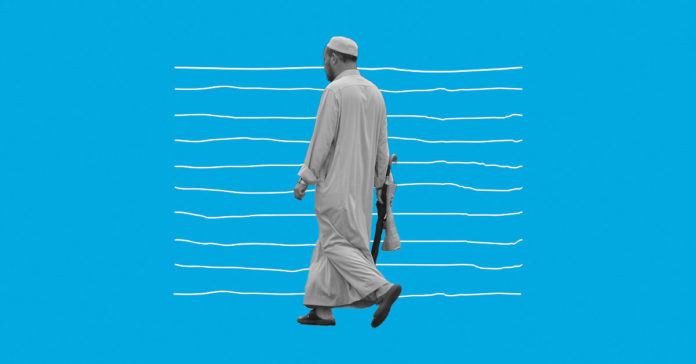To be sure, ‘Umar (ra) cared about the spiritual well-being of his people, but he (ra) cared about their physical well-being as well. In our times, hardly a day passes by without some nutritionist or medical researcher warning the general public about the dangers of obesity. Only fifteen or twenty years ago, the dangers of obesity took a backseat to the dangers of smoking. But now researchers know for certain that obesity is only second to smoking as a leading cause of preventable diseases. So, while the dangers of obesity were largely ignored some years earlier, they are now a leading focus of attention among medical professionals.
One would think, therefore, that human beings have hitherto been blind to the dangerous consequences of obesity. But that is not the case – certainly not so in Islam. For about fourteen centuries ago, Umar ibn Al-Khattaab (ra), the Leader of the Muslim Nation, launched what was tantamount to a nationwide health campaign. He (ra) warned his people about the dangers of obesity and gluttony. He (ra) encouraged fasting; and he encouraged people to eat, not according to their desires, but according to their needs. In one of his speeches, he summed up succinctly the grave consequences of obesity, “O people, beware of gluttony, for indeed, it makes one lazy during Prayer, it harms the body, and it causes diseases. And indeed, Allah despises the learned man who is fat. Instead, adhere to moderation in your intake of food, for moderate, sensible eating brings one nearer to piety, and further away from excessiveness; also, it makes one stronger when it comes to worshipping Allah, the Possessor of Might and Majesty. And a slave [of Allah] will not become [spiritually] destroyed until he gives preference to his desires over his Religion.”[1]
In Al-Jawzee (may Allah have mercy on him) reported that, upon seeing a man with a huge belly, ‘Umar (ra) asked, ‘What is this?” The man replied, “It is a blessing from Allah (i.e., Allah has blessed me with much food, and that is why I have such a huge belly).” Umar (ra) then said, “No, rather it is a punishment from Allah!”[2]
‘Umar (ra) coupled good advice about nutrition with sensible advice about exercise that other essential component of maintaining a healthy body. He (ra) used to say, “Teach your children both swimming and archery. Order them to learn horseback riding, making them so proficient at riding that they will confidently be able to jump on a horse [and ride it with complete control]. And relate to them poetry that is beautiful [in its wording and meaning].”[3]
In other ways as well, ‘Umar (ra) showed concern for the well-being of his people. For instance, he forbade people with contagious diseases from mixing with the general population of citizens. If he (ra) saw someone with a contagious disease, he (ra) would order that person to stay in his home until he recovered from his illness. It is related that, one day, ‘Umar (ra) passed by a female leper who was performing Tawaaf (walking around the Ka’bah as an act of worship) around the Ka’bah. He (ra) said to her, “O female slave of Allah, would that you stayed in your home, so that you do not harm others.” The woman then obeyed Umar’s command. But then after ‘Umar (ra) died, a man passed by the woman’s home and said to her, “Verily, the one who forbade you [from mixing with the people] has died, so come out now.” She, being a pious Muslim, replied, “By Allah, it is not right that I should have obeyed him while he was alive, only to disobey him now that he is dead.”[4]
[The Biography of Umar ibn Al-Khattaab (RA) by Dr. ‘Ali Muhammad As-Sallaabee, Vol. 1, p.426-428]
Notes:
[1] Al-Khaleefah Al-Faarooq, by Dr. ‘Abdur-Rahmaan Al- ‘Aanee (Pg. 124).
[2] Manaaqib ‘Umar Ameer Al-Mo’mineen (pg. 200).
[3] Al-Khaleefah Al-Faarooq (pg. 124); refer also to Ar-Riyaad An-Nadirah.
[4] Al-Khaleefah Al-Faarooq (pg. 124); refer also to Ar-Riyaad An-Nadirah









